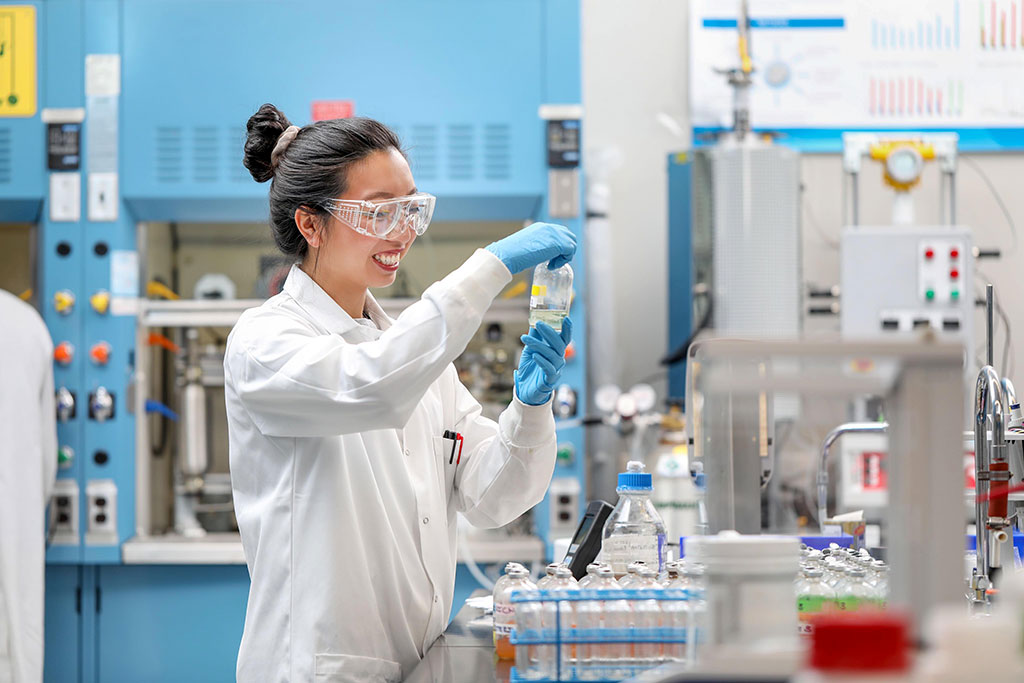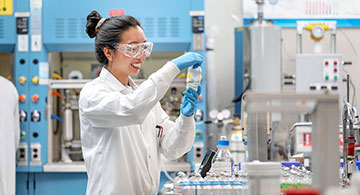 This month, I had the pleasure to interview my childhood friend, Louise Ramos. She is a young Filipino Canadian studying oncology and seeking to create cures for cancer. Her bright mind and kind heart have always been an inspiration to me. Please enjoy this interview below…
This month, I had the pleasure to interview my childhood friend, Louise Ramos. She is a young Filipino Canadian studying oncology and seeking to create cures for cancer. Her bright mind and kind heart have always been an inspiration to me. Please enjoy this interview below…
Could you tell me a bit about yourself and the work you do in oncology?
My name is Louise and I am a student at the University of Sheffield in England pursuing a Masters in Translational Oncology. I have a bachelor’s degree from the University of Alberta with a Specialization in Molecular Genetics and my hope is to become a Professor in Oncology either here in Canada or the UK. I am a strong advocate for science education both at the university level and for the youth as well.
Oncology is the study of cancer and for most people in this field, there is usually a personal association that drives us to pursue cancer research as a career. For me, that was the case as my family unfortunately has experienced more than our fair share of people affected by cancer and individuals who fought their hardest but could not make it through this illness. Growing up, I thought that the only way to help people in medicine was through being a doctor. Up until high school and a little through university, I had the mindset of going into medicine to be an Oncologist. It wasn’t until I learned more in my undergraduate about how genes influence the development of cancer and that there are ways to target genes for its treatment.
After graduating university, I was a little lost. I wasn’t sure what I wanted to do. I did know that I did enjoy my research project in my last year of university and knew that I wanted to do something with cancer. Around this time, I became friends with a master’s student who told me about his experience in academia which inspired me to pursue a masters in Oncology. I looked for different ones around Canada, but the programs were not quite what I wanted to do. I wanted both to work in a laboratory, but to also have my research have an impact on patients. Thus, I found my current program, Translational Oncology, which aims to bridge the gap of treatments developed in a lab to clinical relevance. I am currently working with an amazing research group that is trying to develop a better cancer drug with fewer side effects to improve patient quality of life.
What’s something surprising that you’ve found in your work?
There are actually three things that I have found interesting throughout my journey as a scientist and as a person pursuing Oncology:
1. There are a lot of misconceptions about cancer
There is quite the difference between what the public sees about cancer and what scientists in the field see. The media often portrays cancer as one disease that can be cured by one pill or the subject of conspiracy ads suggesting that the government is hiding the cure, or you can cure cancer through alternative methods. Cancer is more complex than most people realize. It is actually a compilation of 100 diseases in one and varies between patients. There are advancements being made everyday and passionate people are diligently working to a better cancer-free future.
2. There is so much we still need to investigate
I have learned that in science, it is ok to say “I don’t know” sometimes. There is so much information out there and every day there are new things being discovered. It is impossible to know everything about a topic or field, but, through collaboration with other scientists, you can build a more wholistic viewpoint.
3. People are very willing to share their stories and experiences with cancer once I tell them I am in cancer research
Probably one of the most interesting things I have experienced over the years is that once I tell someone I am pursuing cancer studies, people would openly confide in me about what it was like when they got diagnosed with cancer or who they lost and how it affected them. I remember working a shift at a retail store where a woman told me she had lost her mom to ovarian cancer and asked ME if there is any way to prevent that from happening to her. I was 21 and barely out of university. But that didn’t matter to her. It doesn’t matter to most people what my age is or who I was, I represented an outlet to where a human and not the internet can have a more meaningful interaction and potentially give guidance. I never give irresponsible advice or tell them how to stop cancer. I listen, share my experience dealing with cancer patients, tell them people are working on better treatments, and let them know that if they have concerns to see a physician.
What is it like to work in the sciences as a Filipino woman?
Its interesting because I actually have similar experiences in two different countries. Studying both in Canada and the UK, I do not see many Filipinos pursuing postgraduate studies. When I was in undergrad, I was the only Filipino on my whole floor and, in my Masters, I am one of two Filipinos (only Filipino woman) in the whole Department of Oncology. There are certain sectors of science that are still considered unbalanced in terms of gender and race; however, Oncology and Biology are one of the most welcoming and diverse fields. I have had the privileged of working with brilliant minds of different backgrounds and have been treated equally to my colleagues. There have been instances where being a woman has made certain individuals not take me seriously, however, it was from rising above their ignorance that I have gained the confidence in my abilities as a scientist. As I look at the world, I can see that things are constantly changing and dynamics are shifting in favour of equality. If we continue on this path of openness and acceptance, I think that the world of science will evolve for the better.
What has helped you to persevere in the face of adversity?
I am thankful that I have such an amazing support system in place to help me get through my tough times. Science, although rewarding, is not a profession you enter without your share of challenges. Afterall, science only really works 1% of the time. My amazing family, friends, and wonderful boyfriend that have all pushed me to be where I am today. Even though I am a scientist, I am also Catholic and always will be. My faith allows me to put trust in God. It gives me hope when I feel like I cannot continue or when the outcomes are not what I expected. Lastly, the idea of making the lives of cancer patients better has always kept me going during long nights in the lab. I want to do everything I can to help cancer patients not suffer during their treatments and to give them more time with the people they love.
What advice would you give to our generation of Filipino youth?
If you love science or are even a little interested in it, I encourage you to explore that passion and do you research to see if there are ways to get involved as soon as you can. I know it can be scary to tell your family that you want to be something other than a nurse, doctor, or engineer. We need more brilliant Filipino minds to share their talents to help further research to develop better treatments, build better machines, and to bring an interesting perspective to higher education.
Do you have anything additional you’d like to say?
For Filipino parents who have children who show interest in science at a young age and are wanting to pursue science as a career, nurture their interests and help them along their journey however you can. This part is a little emotional for me because I understand it’s not a traditional career path and I can only imagine the hesitation from parents when you hear your child say they want to be a scientist. Science is more than just a gateway degree to get into medicine and can be the start of a bright and fulfilling future. My parents have been so incredibly supportive of my decision which has helped me more than they know. I would not have gotten to where I am now or be the person I am today, without them.


